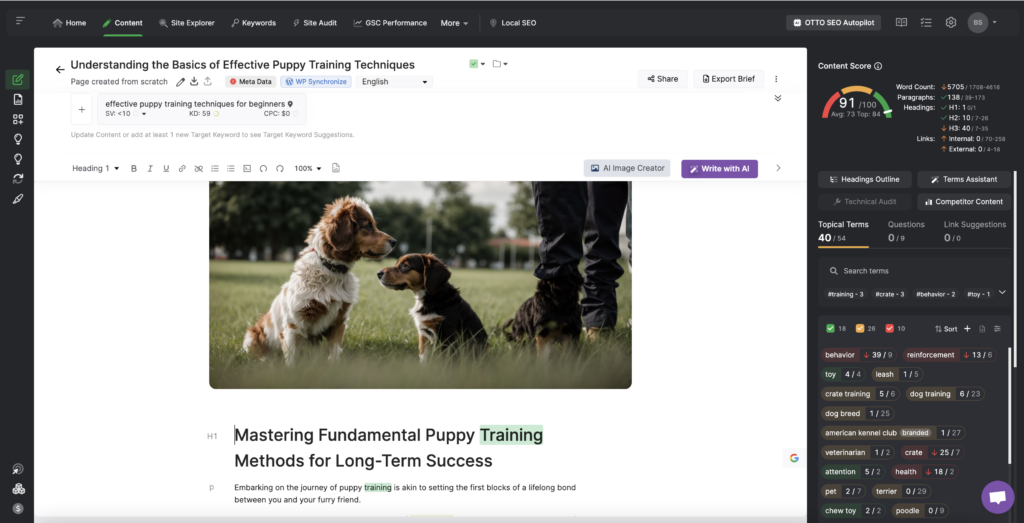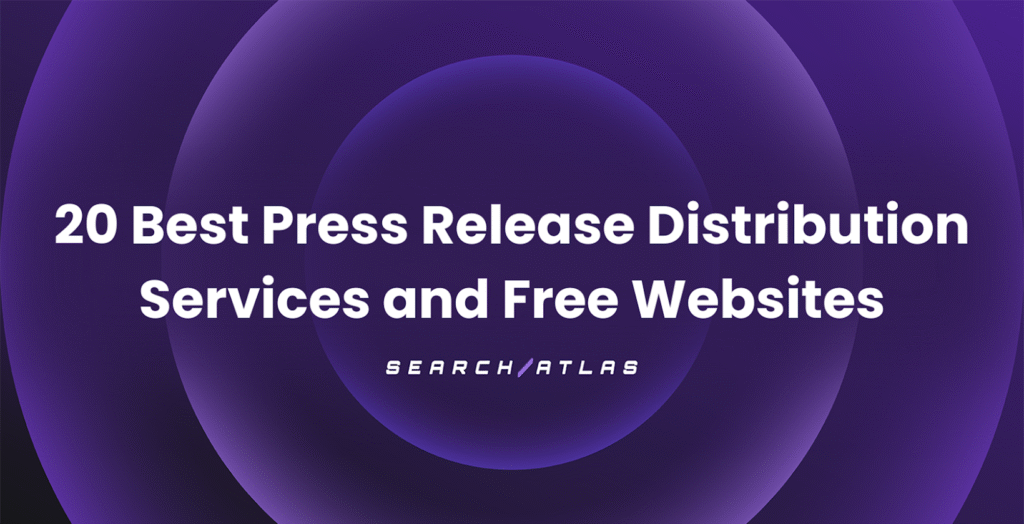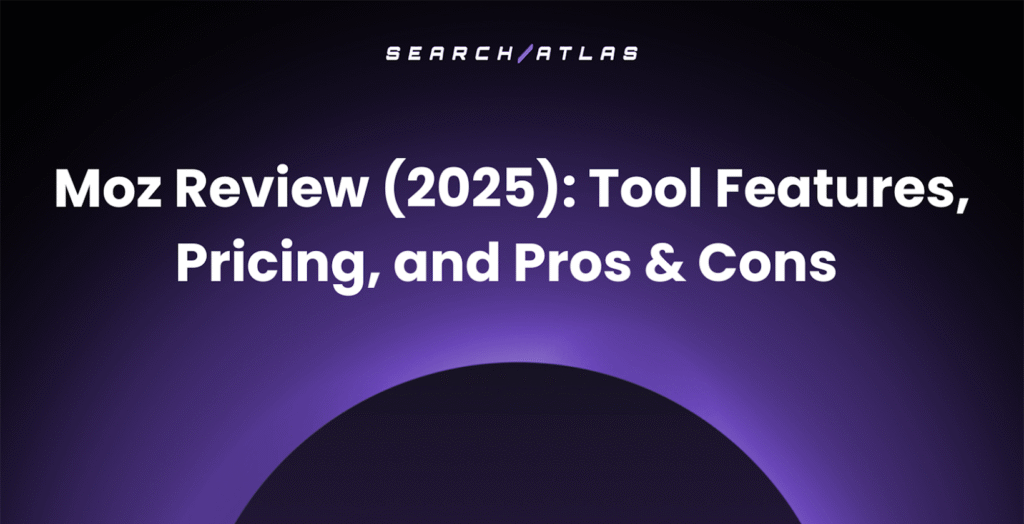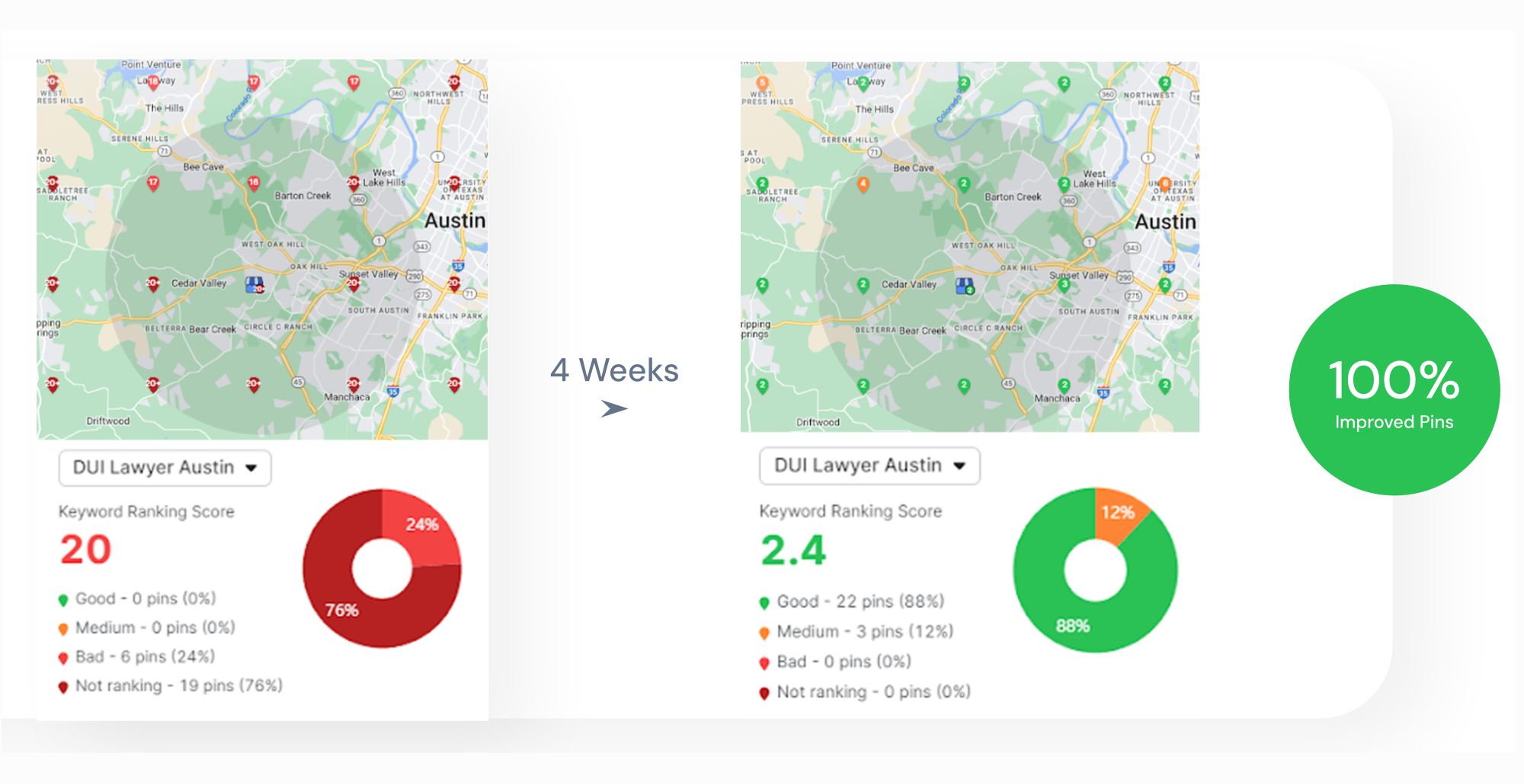Staying competitive online means taking advantage of every tool at your disposal—and schema markup is one of the most powerful.
If you’re not using the best schema markup tool for your site, you’re missing out on a major opportunity to boost your search rankings and attract more organic traffic. 📈
Schema markup helps search engines better understand your website’s content, enabling your site to display rich snippets, knowledge panels, and other enhanced search features. 🔍
Don’t fall behind. Start using our list of the seven best schema tools for higher rankings, more search visibility, and ultimately, more clicks!
What Is a Schema Markup Tool?
A schema markup tool helps users generate structured data for their website, which is essential for enhancing search visibility. Structured data allows search engines to better understand your content, enabling features like rich snippets or knowledge graphs in search results.
This, in turn, can boost your click-through rates and overall SEO performance. Without schema markup, websites may miss out on these valuable enhancements, putting them behind competitors.

Factors To Consider With Schema Markup Tools
Here are a few key considerations to look for in the best schema markup tool:
- Ease of use: The tool should generate valid markup without needing extensive technical skills.
- Comprehensive support: It should cover a wide range of schema types for different content.
- Real-time validation: Errors in your markup can hurt visibility, so tools should provide instant feedback and validation.
- Automation: For larger websites, the tool must allow for scalable and automated markup generation.
Below, you’ll find seven of the best schema markup tools that balance ease of use, flexibility, and reliability in generating structured data. ⬇️
Maximize Your SEO Strategy With These 7 Schema Markup Tools
Start implementing high-quality schema without unnecessary friction or errors with our top picks!
1. Search Atlas
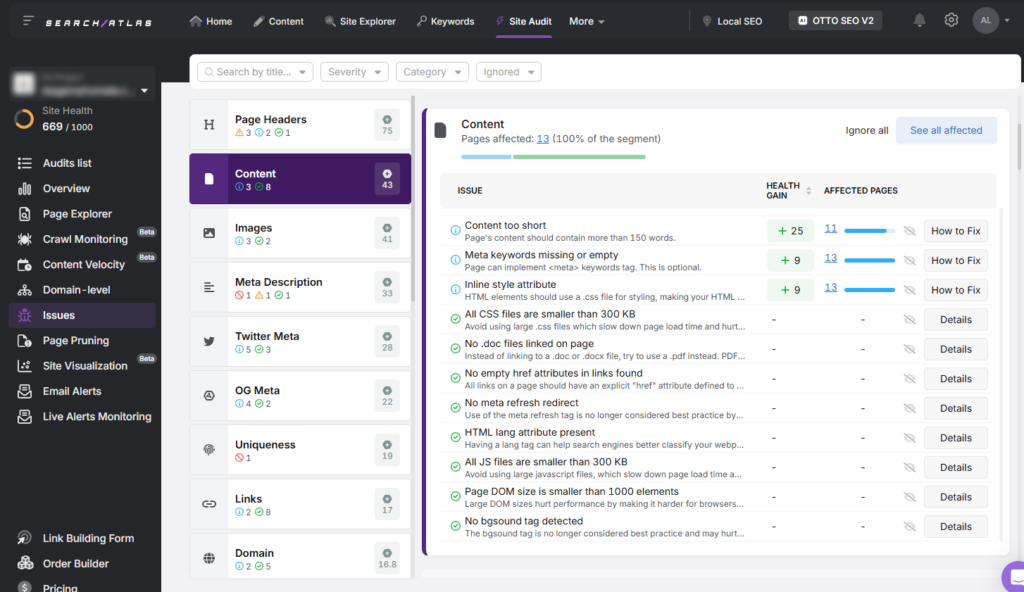
Search Atlas is a comprehensive SEO solution designed for both beginners and advanced SEO users. The platform has a schema markup tool as a part of its suite of features.
It offers an intuitive interface that simplifies the creation of structured data, making it easier for websites to implement and manage schema markups. The schema markup tool helps users identify potential markup opportunities and automates the process for efficiency.
Search Atlas is loved for its simplicity and ability to integrate smoothly into broader workflows. This is what makes it ideal for users who want a streamlined solution for technical SEO and content creation.
It’s on this list because it provides solid schema markup support along with many other SEO features, making it a comprehensive choice for businesses looking to enhance their search visibility.
Popular features
- Schema Creator: Generate JSON-LD markup for 30+ schema markup types. Copy and paste it into your HTML to improve your SERP appearances.
- Automated Schema Suggestions: Get recommendations for which schema markup to add based on the content type, making it easier to optimize pages.
- Seamless Integration: Use the technical SEO tools alongside others within the Search Atlas suite, allowing you to manage schema and track performance in one platform.
- Content Planner: Generate a complete content plan for your SEO strategy and make use of automated keyword clustering and topic ideation.
- Real-Time Data: Instantly check the accuracy of your structured data to ensure it’s error-free and compliant with Google’s guidelines.
- SEO Content Assistant: Maximize your SEO content production and learn the best terms to include in your content.
Limitations
- Some users mention difficulties learning the platform, but there are one-on-one onboarding calls available for support.
- A few users note there is no free version; a free trial is available.
Pricing
| Starter plan | Growth plan | Pro plan | |
| Price | $99/month | $199/month | $399/month |
| Free OTTO SEO Activation | 1 | 1 | 4 |
| User Seats | 2 | 3 | 5 |
| GSC Site Projects | 5 | 15 | Unlimited |
| AI Quota | 100 | 250 | 99,999 |
Search Atlas reviews
- G2: 4.8/5 (91)
- Capterra: 4.9/5 (63)
2. Merkle Schema Markup Generator
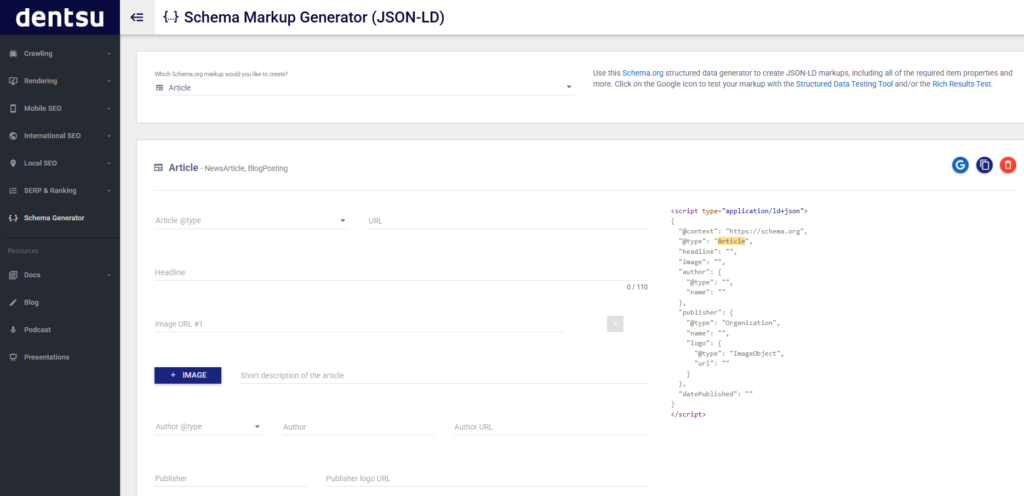
Merkle Schema Markup Generator is a free tool from Merkle and dentsu that allows users to create schema markup for various types of content, including articles, products, and events.
Its simple design makes it accessible to users with minimal technical skills, as it generates JSON-LD code that can be directly added to a website’s HTML.
Merkle’s tool is popular for its no-frills approach, offering core schema capabilities without added complexity. It’s included in this list because it provides an easy, free way for users to implement structured data on their site, making it especially useful for small businesses or those new to schema markup.
Popular features
- JSON-LD Generator: Easily create JSON-LD code for a wide range of content types like articles, products, and events. Quickly copy and paste it into your website’s HTML.
- Free and Simple Interface: The tool is free to use with no registration required, making it accessible for users of all skill levels.
- Multiple Schema Types: Support essential schema categories, including articles, local businesses, and events, to ensure your website is well-optimized.
- User-Friendly Design: Its minimalistic and straightforward design makes it easy for non-technical users to generate and apply structured data.
Limitations
- Some reviewers report limited customization options for complex schema needs.
- A few users mention the tools are simplistic and don’t offer too many options.
Pricing
The tool is free to use as part of Merkle and dentsu’s many technical SEO tools.
Merkle Schema Markup Generator reviews
- G2: 4.3/5
- Capterra: There are no reviews for Merkle on Capterra.
3. Schema App
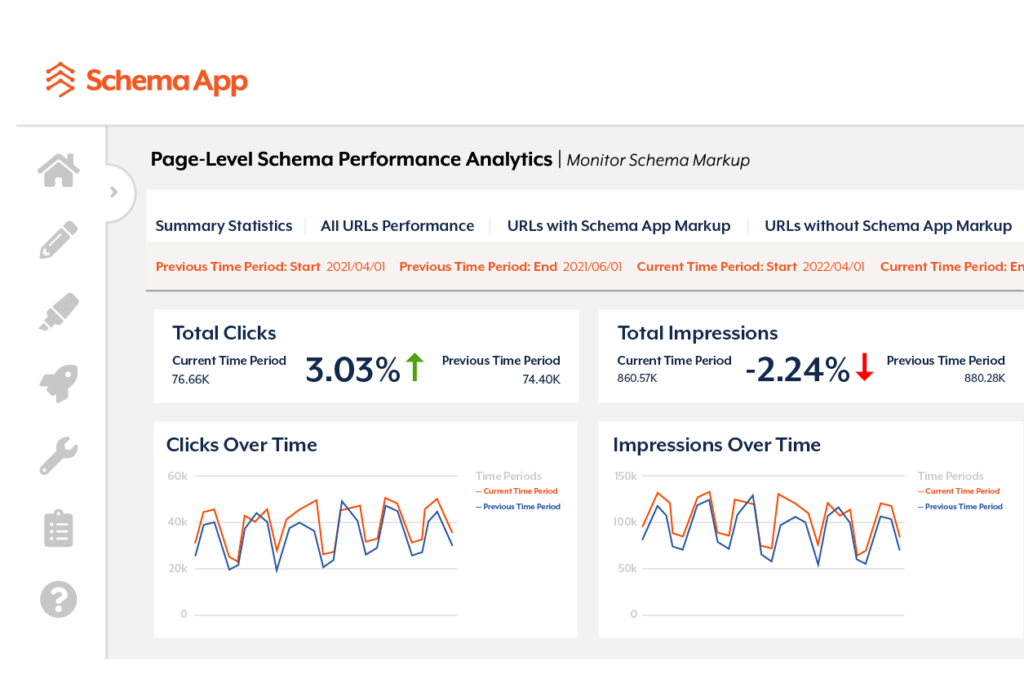
Schema App is a comprehensive schema markup tool that allows users to manage and automate structured data across their websites. It’s known for its ease of use and support for various schema types, making it ideal for businesses that want a full-service solution.
With a focus on scalability, Schema App integrates with content management systems (CMS) to automate schema deployment across large sites.
It’s on this list because it offers a robust feature set that caters to both small and large-scale websites, ensuring that schema markup is applied consistently and accurately.
Popular features
- Automated Markup Deployment: Automatically deploy schema markup across your site, ensuring that your structured data remains up-to-date and scalable.
- Wide Schema Type Support: Support more than 800 schema types, including complex options like job postings and medical entities, covering various business needs.
- CMS Integration: Seamlessly integrate with content management systems like WordPress and Shopify, automating schema application across multiple pages.
- Schema Performance Analytics: Get detailed analytics to track the performance of your schema markup in search results, helping you refine your strategy.
Limitations
- Some users report a steep learning curve for beginners.
- A few reviews mention the higher pricing for advanced features.
Pricing
Contact the sales team at Schema App to learn more about the solution and get a customized quote.
Schema App reviews
- G2: 4.7/5(18)
- Capterra: 4.9/5(18)
4. Rank Ranger
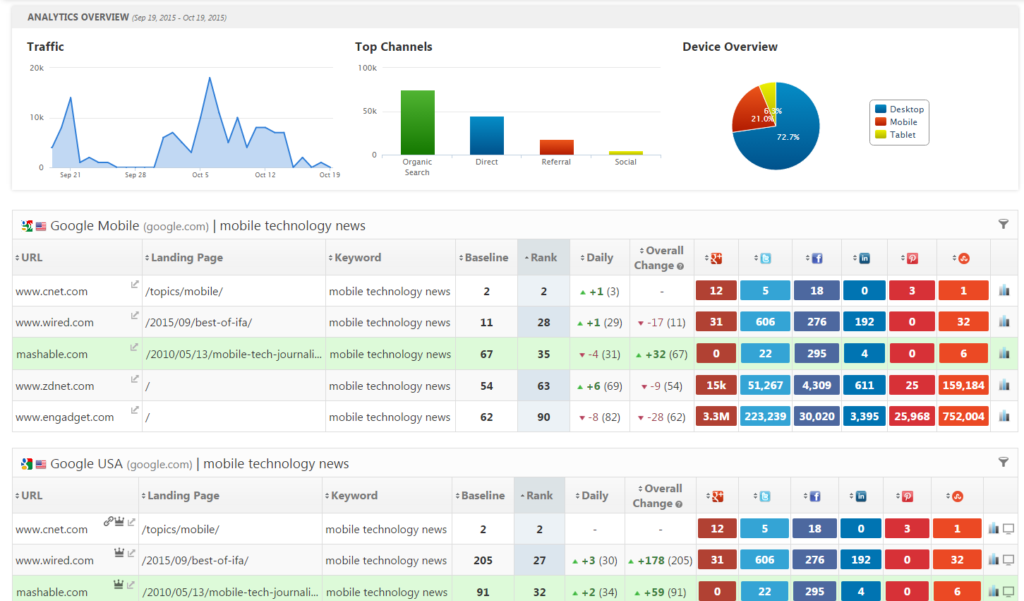
Rank Ranger is an all-in-one SEO platform that includes a schema markup generator as part of its broader suite of tools. It’s designed to help users easily create and monitor structured data on their website. Rank Ranger’s schema generator is simple to use, making it a good choice for those who need an efficient solution without needing advanced coding skills.
It also provides schema validation and reporting to ensure the markup is working correctly. Rank Ranger earns its place on this list for offering schema capabilities alongside other useful SEO features like rank tracking and site audits.
Popular features
- Simple Schema Generator: Easily generate structured data for various content types, including FAQs and How-To sections, with just a few clicks.
- Real-Time Validation: Get instant feedback on your schema, allowing you to fix issues before publishing and ensuring error-free markup.
- Schema Performance Tracking: Track the impact of your schema markup on your search performance, so you know which content is improving your rankings.
- SEO Platform: Access a full suite of SEO tools, including rank tracking, site audits, and keyword analysis, for holistic SEO management.
Limitations
- Some users report limited schema types available compared to standalone tools.
- A few reviewers mention the user interface could be more intuitive.
Pricing
- Basic: $69/month, 10 campaigns, 350 keywords, 5 competitors per campaign, 2 search engines, daily keyword rank tracking
- Standard: $119/month, 20 rank tracking campaigns, 800 keywords tracked, 5 competitors per campaign, 2 search engines, daily keyword rank tracking
- Premium: $199/month, 40 campaigns, 2000 keywords tracked, 5 competitors per campaign, 2 search engines per campaign, daily keyword rank tracking
RankRanger reviews
- G2: 4.1/5(11)
- Capterra: 4.8/5(5)
5. Microdata Generator by SEOChat
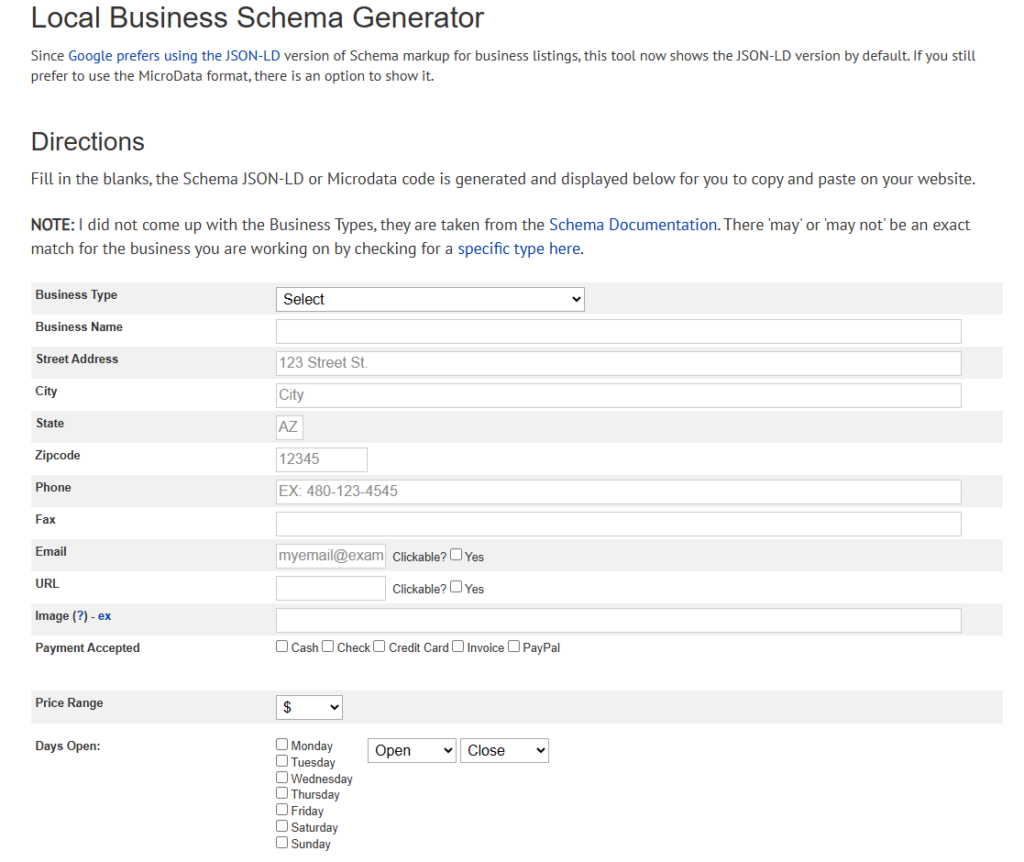
Microdata Generator by SEOChat is a free tool that allows users to quickly create schema markup in microdata format. It offers a simple interface for generating structured data for multiple content types, including products, organizations, and reviews.
While JSON-LD is more popular, microdata can still be useful for sites with specific requirements. SEOChat’s tool is on this list for providing a fast, no-cost way to implement schema markup, especially for users looking for microdata formatting options. Its simplicity makes it ideal for smaller websites or users who are new to schema.
Popular features
- Microdata Format: Generate schema markup using microdata instead of JSON-LD, catering to users who prefer this format for their website’s structured data.
- Supports Key Schema Types: Create structured data for products, organizations, and reviews, helping your website display rich snippets in search results.
- No Registration Required: This free tool doesn’t require account creation, offering quick access for users needing fast schema generation.
- Beginner-Friendly Interface: Designed for ease of use, this tool helps even non-technical users create basic structured data for their site.
Limitations
- Some users find the microdata format less flexible than JSON-LD.
- A few reviewers mention limited schema customization options.
Pricing
The tool is free to use.
Microdata Generator by SEOChat reviews
- G2: There are currently no reviews of this tool on G2.
- Capterra: There are currently no reviews of this tool on Capterra.
6. Yoast SEO Plugin
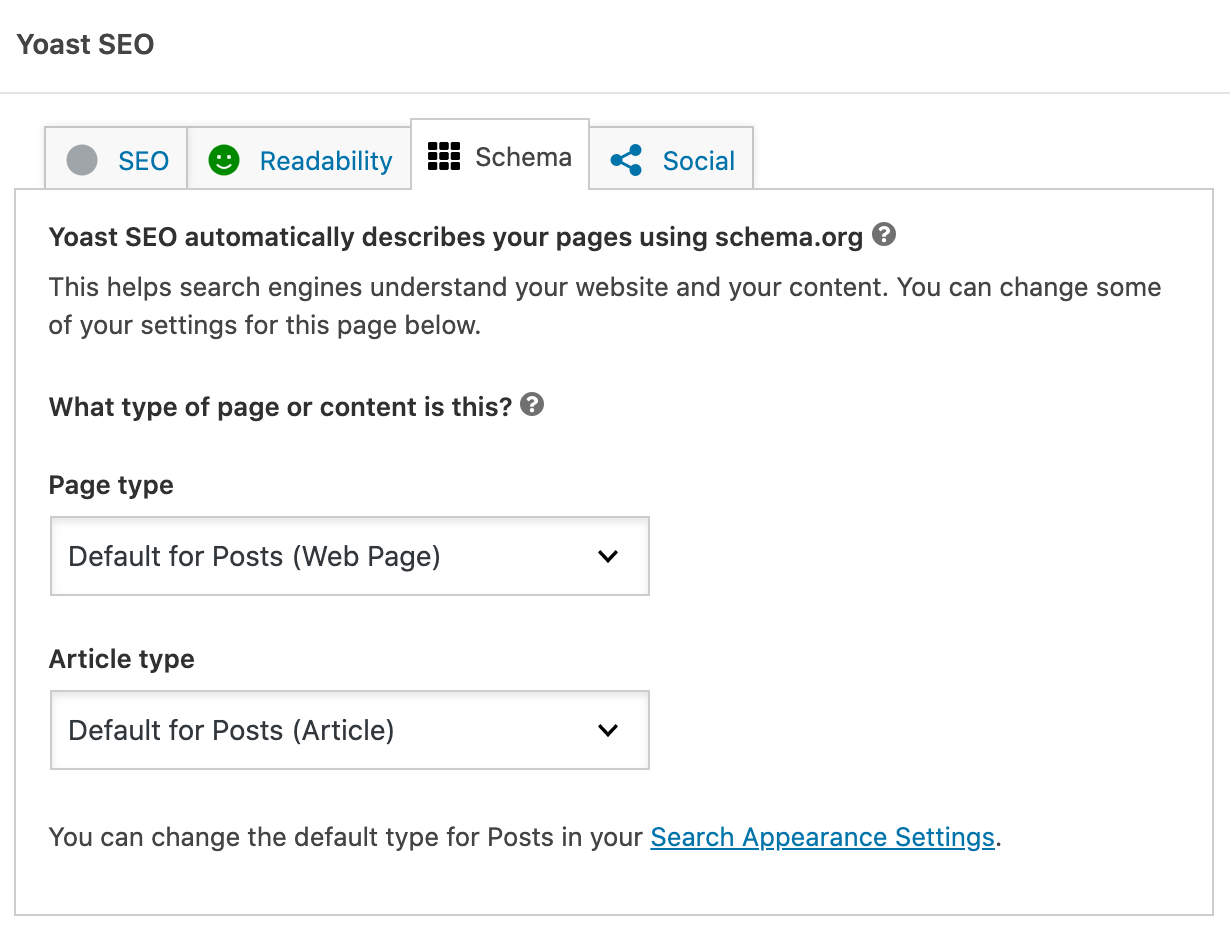
Yoast SEO is a popular WordPress plugin known for its wide range of SEO features, including built-in schema markup capabilities. With Yoast, users don’t need technical knowledge to add schema to their site, as the plugin handles it automatically. It supports a variety of schema types, such as articles, products, and breadcrumbs.
Yoast’s schema integration makes it a powerful tool for WordPress users looking to optimize their site for search engines. It’s on this list because it simplifies the process for users who are already leveraging WordPress, offering a seamless way to implement schema alongside other SEO optimizations.
Popular features
- Automatic Schema Generation: Automatically generate structured data for common content types, such as articles and product pages, without any manual effort.
- Breadcrumb Schema: Add breadcrumb schema to improve navigation and enhance search results, making it easier for search engines to understand your site structure.
- WordPress Integration: Seamlessly integrate into WordPress, allowing you to manage schema as part of your broader SEO strategy directly from your CMS.
- Content Analysis for SEO: Get real-time content analysis that checks for schema integration and other SEO factors, helping you optimize your pages for search engines.
Limitations
- Some users report limited control over customizing schema.
- A few reviewers note that schema functionality may be too basic for advanced users.
Pricing
- Yoast SEO Premium: $99/year
- Yoast SEO for Shopify: $19/month
Yoast SEO Plugin reviews
- G2: 4.6/5 (185)
- Capterra: 4.6/5 (125)
7. Google Structured Data Markup Helper
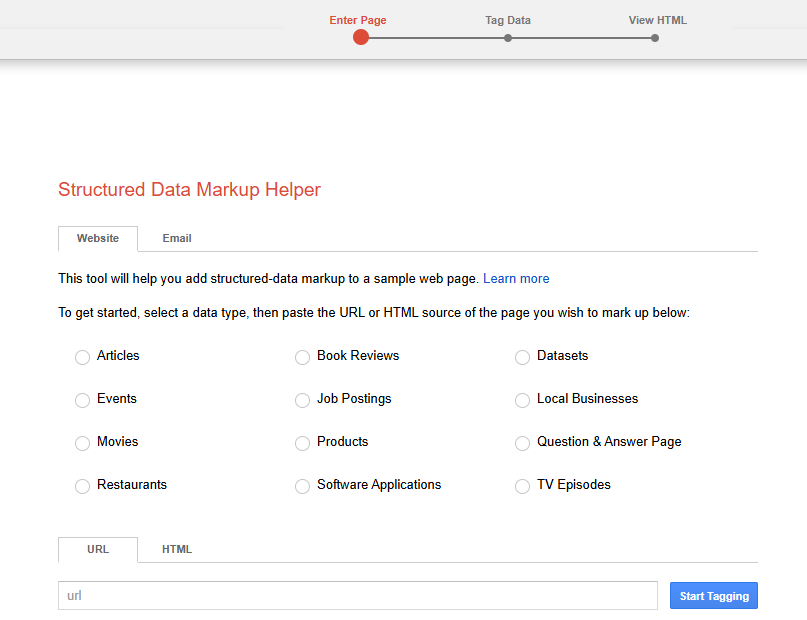
Google’s Structured Data Markup Helper is a free tool designed to help users create structured data for their web pages. It’s particularly helpful for beginners, as it guides users step-by-step through the process of adding schema markup to various types of content, from articles to products.
While it doesn’t generate code for every schema type, it covers the essentials, making it a solid starting point for those who need simple, reliable schema markup. It’s included on this list because it’s a go-to tool for users who want a straightforward, no-cost way to add structured data to their site.
Popular features
- Step-by-Step Guidance: Walk users through the schema creation process with easy-to-follow steps, making it ideal for beginners.
- Supports Core Schema Types: Get support for common content types like articles, events, and products, allowing you to quickly create structured data.
- Google Integration: Work directly within Google’s ecosystem, ensuring the structured data complies with search engine standards.
- No Cost to Use: A free tool with no hidden fees or subscription costs, allowing you to generate markup without financial barriers.
Limitations
- Some users report limited schema options for more complex websites.
- A few reviewers note the lack of advanced features for scaling.
Pricing
The tool is free to use.
Google Structured Data Markup Helper reviews
- G2: There are no reviews for this Google markup tool on G2.
- Capterra: There are no reviews for this Google markup tool on Capterra.
Unlock the Power of Your Structured Data With Schema Markup Tools
Schema markup is more than just a technical add-on—it’s a critical element of modern SEO strategy. With the right schema markup tool, you can enhance your website’s visibility, improve click-through rates, and create rich search results that engage users.
Choosing the best schema markup tool ensures you stay ahead of the competition, increasing your organic traffic.
Among the available tools, Search Atlas is a comprehensive solution that covers your schema needs and integrates seamlessly with other crucial SEO processes.
Whether you’re looking for schema suggestions, keyword research, backlink analysis, or technical SEO analysis, Search Atlas has the features to maximize your site’s performance.
Try Search Atlas today with a free trial and unlock the full potential of your structured data!


